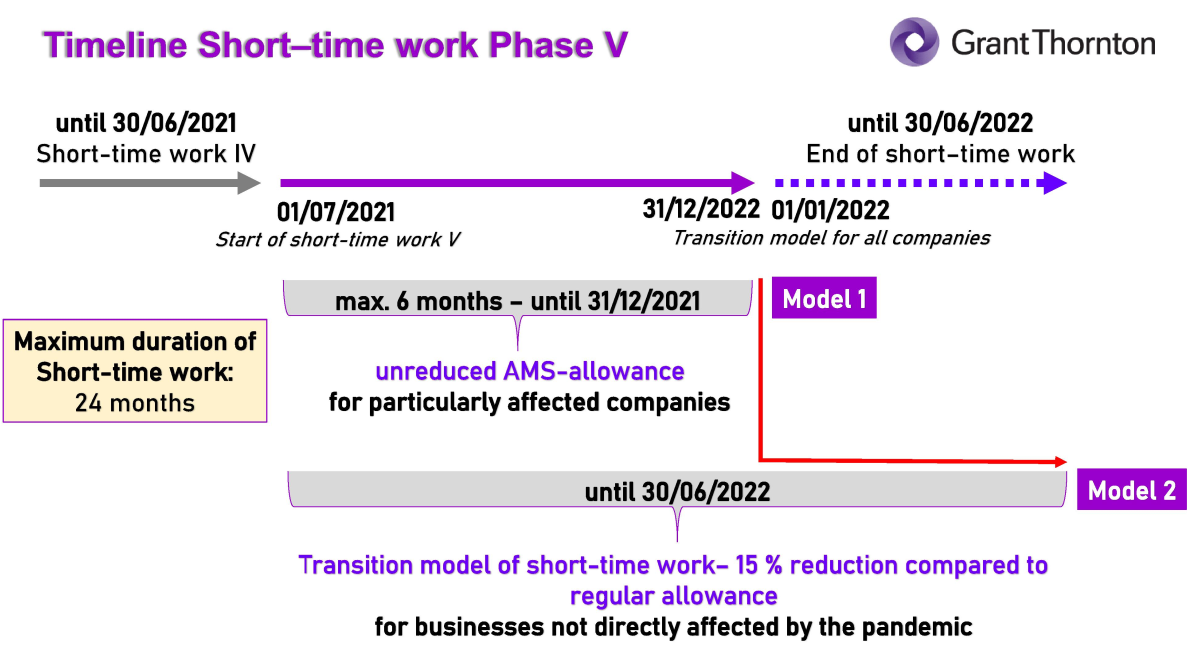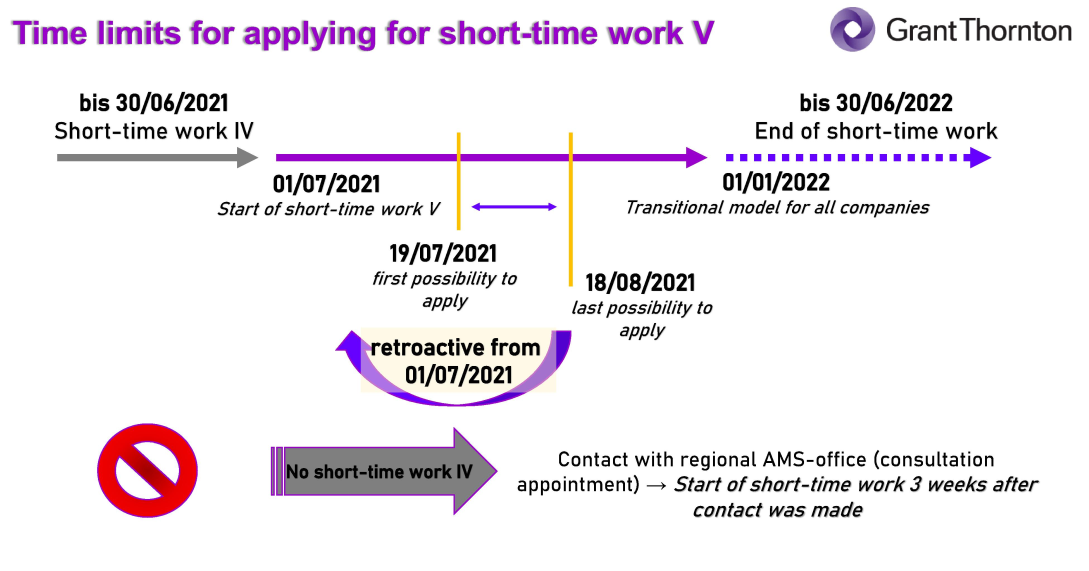-
Audit of annual and consolidated financial statements
We place particular emphasis on customized solutions and international service and adapt our services to your needs.
-
Assurance related advisory services
Assurance related advisory services are based on the knowledge and expertise that are the staff of life of our auditors.
-
Global audit technology
We apply our global audit methodology through an integrated set of software tools known as the Voyager suite.
-
Accounting related consulting
Accounting in accordance with UGB, US-GAAP or IFRS is in constant motion. The integration of new regulations into their own accounting systems poses special challenges for companies.
-
Corporate Tax
We are your problem solvers for corporate tax issues
-
Restructuring, Mergers & Acquisition
Expertise and creativity for the perfect structure
-
International Tax
We are here, whenever our clients require our assistance
-
Transfer pricing
We are your experts for an optimal transfer pricing structure
-
Indirect Tax & Customs
We take care of your indirect taxes so you can take care of your business
-
Private Wealth
We are your competent partner in the field of Private Wealth Tax Services
-
Real Estate Tax
We are a valuable partner at every stage of your property's life
-
Global Mobility Services
Local roots and global networking as a secret for successful assignment management
-
Advisor for Advisor
As advisors for advisors, we support in complex situations
-
Valuation
Valuations are a core competence of Grant Thornton Austria. As auditors and tax advisors we combine profound know-how with our practical experience to offer you customized solutions for your valuation assignment. Our industry expertise is based on years of services to our clients, including listed companies as well as owner-managed companies with an international focus. We advise on valuation matters related to arbitration and provide expert opinions.
-
Forensic Services
When it comes to risks in business, our experts are on hand. We support you not only in suspicious cases or in disputes, but also develop suitable strategies in the area of prevention to avoid serious cases as far as possible. Our Cyber Security team helps you to keep your networks and applications secure and is quickly on hand in the event of a security leak.
-
Cyber Security
Cyber incidents, IT system failures, the resulting business interruptions and the loss of critical data are one of the greatest business risks for companies. Recent cases underline the need for strategic protection and awareness of the issue and require a holistic approach and technical expertise that takes into account all legislative, regulatory and technical aspects of cyber security to protect companies against the daily increase in cybercrime incidents.
-
Sustainability Services
Sustainability is no longer a trend, but the only way to create a future worth living. Our experts will support you in successfully developing your sustainability strategy and preparing your sustainability reporting in compliance with regulations.
-
Transaction Support
We can support you throughout the transaction process – helping achieve the best possible outcome at the point of the transaction and in the longer term.
-
Merger & Acquisition
Companies start new activities and separate from old ones, cooperate and merge. Markets and competitive conditions are subject to constant and increasingly rapid change. As a result, existing business models are changing. Some companies have to restructure and reorganize. But new business opportunities also open up.
-
Restructuring & Going Concern Forecast
Restructuring & Going Concern Forecast: Bundled services for your strategic, operational and financial decisions offer the right answers for companies, banks, shareholders and investors.
-
Internal Audit
Internal Audit helps companies and organisations to achieve their goals by analysing and evaluating the effectiveness of risk management, controls and management and monitoring processes. Internal Audit focuses on independent and objective audit (assurance) and consulting services that improve the value creation and business activities of your company.
-
Expert dispute resolution & advisory
Grant Thornton Austria offers comprehensive services in the field of business-oriented expert services with a broad range of competencies from banking to communication. The core activity of experts is the objective recording of findings and the preparation of expert opinions - regardless of all external circumstances. Our experts Gottwald Kranebitter and Georg H. Jeitler, as sworn and court-certified experts, ensure that the highest professional standards and the principle of objectivity are observed.
-
Blockchain and Crypto-Asset
Blockchain as a carrier technology for crypto currencies and smart contracts, among other things, is becoming increasingly important. Grant Thornton Austria offers comprehensive audit and confirmation services for block chain technologies and business models.
-
Corporate & Brand Strategy
We support you in developing growth strategies for a sustainably successful future and in maximizing the potential of your brand.
-
International Project Coordination
Our International Engagement Management team is your central point of contact for international projects in all our service lines. We take care of operational project management for you and act as a central point of contact and coordination for your projects. We support companies that start international projects from Austria as well as companies from abroad that want to gain a foothold in Austria or use Austria as a hub for their international projects, especially in the DACH (Germany, Austria and Switzerland) and CEE region.
-
International Desks
As a member of the Grant Thornton network, we guarantee direct access to resources from our worldwide circle of partners. This global connection enables us to seamlessly integrate highly qualified specialists and industry experts from different countries around the world into our teams. Through our broad perspective and diverse expertise, we ensure that we can optimally meet the individual requirements of our clients in an increasingly globalised economy.

The application for short-time work in Phase V during an imposed lockdown can be submitted retroactively 4 weeks after the start of short-time work. This is intended to defuse the unplanned lockdown.
Companies that did not apply for short-time work in the period between April, 1 2021 and June, 30 2021 (phase IV) do not have to carry out the obligatory consultation with the Austrian labor market service (AMS) if short-time work begins no later than January, 31 2022.
Companies that are directly affected can receive a maximum of 100% subsidies until March 31, 2022. This includes enterprises that had a decrease in turnover of 50% or more in the 3rd quarter of 2020 compared to the 3rd quarter of 2019 or are affected by an entry ban after July 1, 2021.
For enterprises applying for short-time work only in the period of the new lockdown or affected by an imposed ban on entry, the economic justification for short-time work does not have to be confirmed separately by a tax advisor.
Now that Short-Time Work Phase IV has expired at the end of June 2021 and many companies are still economically impacted due to the Corona pandemic, the government and the social partners recently announced the first details of short-time work Phase V. Below you will find the main framework conditions of the new Corona short-time work Phase V.
Corona short-time work phase V is in force from 1 July 2021 to 30 June 2022. Two different models have been worked out, which can be used by entrepreneurs.
Time schedule
Here you can see the time schedule of the Corona short-time work phase V in the graphical overview:

Short-time work models
Of the two new models for short-time work, one applies to particularly affected companies (limited until Dec. 31, 2021) and one to all other companies:
Model 1
Businesses that continue to be significantly affected by the restrictions of the COVID measures (night catering, trade fair organizers, etc.) can continue to make use of the instrument of short-time work in an unchanged manner. The prerequisite for claiming the unchanged KUA support is the existence of a sales slump of at least 50% (as a comparison period, the third quarter of 2020 is compared to the third quarter of 2019). For these businesses, largely the same framework conditions apply as in Phase IV. The minimum working hours must be 30% based on normal working hours before short-time work. A reduction to up to 0% working hours is made possible by the social partners through an exception request (the corresponding enclosure has to be added to the social partner agreement). After 31 December 2021, a transition to model 2 is possible.
Model 2
For all remaining companies that are not directly affected by restrictions but have nevertheless suffered financial bottlenecks as a result of the COVID crisis, there is the transitional model of Corona short-time work, taking into account a reduced funding level. This model is expected to be available until June 2022. The subsidy level is reduced by a subsidy discount of 15% based on the previously granted subsidy level. The minimum working hours based on the normal working hours (NET) of the employees have to be 50% in this model.
For both short-time work V models, mandatory leave consumption also applies, staggered according to the duration of the requested short-time work period:
- Short-time work period more than 1 month → 1 week of mandatory leave consumption.
- Short-time working period more than 3 months → 2 weeks of compulsory vacation consumption
- Short-time working period more than 5 months → 3 weeks of compulsory leave consumption
Social partner agreements
Within the framework of the social partner agreement (form version 10.0), the sales development since June 2019 until the start of the short-time work period must be stated. The voluntary tip replacement option also remains in place in phase V of short-time working.
Deadlines for submitting applications
Here you can find the deadlines for submitting an application for short-time work phase V in the graphical overview:

Short-time work applications from 1 July 2021 can be submitted retroactively from 19 July 2021 until 18 August 2021 via the eAMS account.
Please note: Please take into account that companies that have not agreed to short-time work between 1 April 2021 and 30 June 2021 (phase IV) have to contact the regional AMS office before submitting a phase V application. In the further course, a consultation meeting will take place between AMS and the social partners to decide whether short-time work cannot be averted by other measures.
If you have any questions about short-time work, our experts Michael Koehler and Martin Pertl will be happy to assist you.



